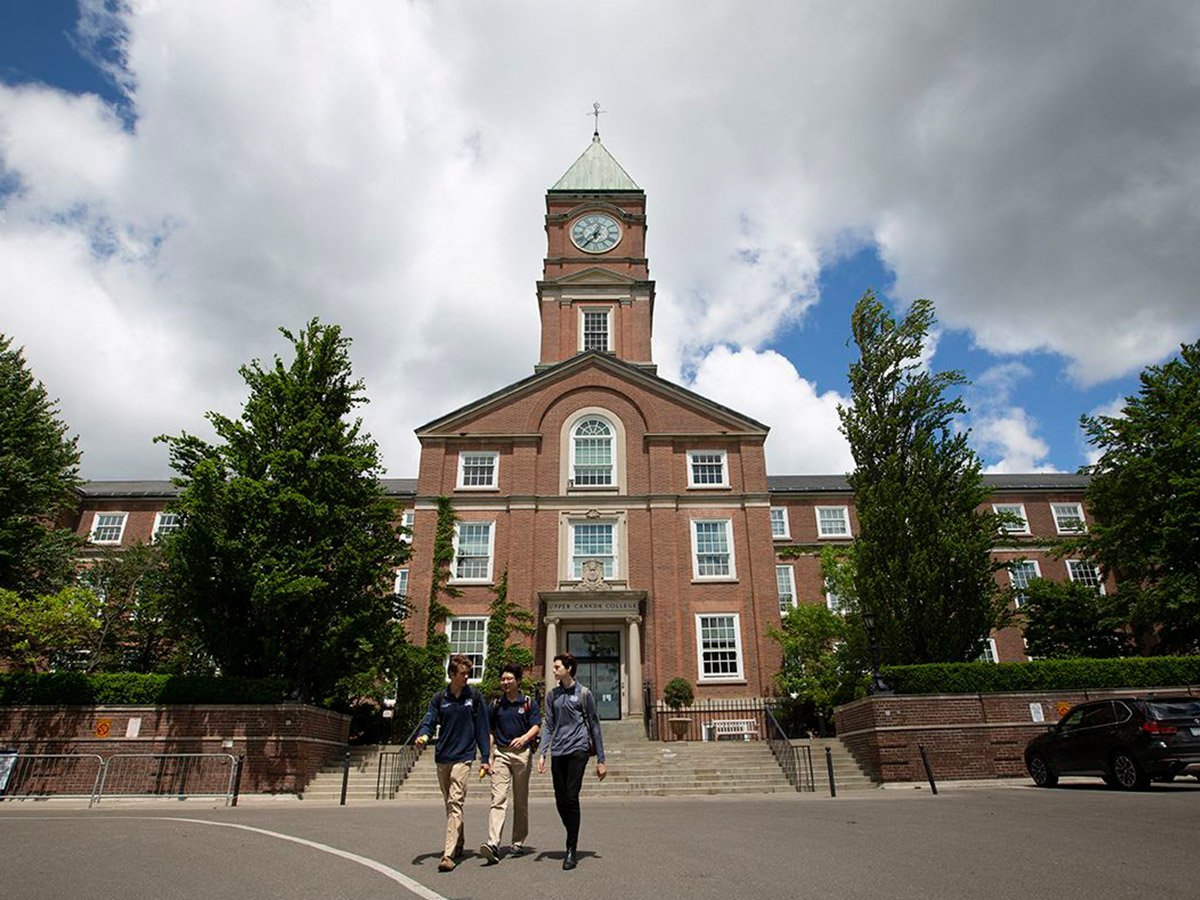Before taking personal/medical/academic breaks, comply with IRCC rules to avoid status violations.
Understanding how long international students can stay out of school in Canada is critical. IRCC permits 150-day authorised leaves; undocumented breaks risk permit revocation. This 2026 guide covers break types, compliance steps, and new DLI reporting rules.
In this extensive guide, we will take you through the specific instances of the possible situations that might occur to international students, including scheduled holidays, personal emergencies, medical leave and academic difficulties. We are going to give an explanation of the distinction between the planned breaks and non-compliance, the dissection of the things that should be done prior to the study pause, as well as the pitfalls that should be avoided to prevent the loss of your status in Canada.
How Long Can International Students Stay Out of School in Canada Without Violating IRCC Rules?
International students in Canada can stay out of school for up to 150 consecutive days without violating Immigration, Refugees and Citizenship Canada (IRCC) rules, but only under specific conditions. This period typically applies during authorized breaks like summer vacations or if a student formally withdraws from their program while holding a valid study permit. However, students must remain in compliance by either transferring to a new institution, changing their program, or leaving Canada if they’re not actively studying. Exceeding this 150-day window without proper documentation or IRCC notification can lead to study permit violations, potentially affecting future immigration applications or status renewal.
Student Story: Taking a Medical Leave Successfully
When Ananya, an international student from India studying computer science in Toronto, experienced a health emergency, she immediately contacted her DLI advisor. With proper documentation from her doctor and written approval from the school, she was granted an authorised 120-day medical leave. After recovering, she resumed full-time studies without any impact on her study permit or PGWP eligibility. “Keeping the paper trail saved me,” she said. “I was able to explain everything during my PGWP application.” Looking for a top international school in Toronto? Discover world-class education with global curricula and diverse student communities.
Understanding Scheduled Breaks vs. Authorised Leaves
Laws of international students in Canada permit them to take time off their studies in two broad fields: scheduled breaks and authorised leaves. The **scheduled breaks** refer to holidays such as summer or winter vacations, as mentioned in the academic calendar of your institution. These do not influence your study permit once you are full-time before and after the break.
how long break can international students take in Canada? Authorized leaves require formal DLI approval for medical reasons, family emergencies, or institutional closures (e.g., strikes). Students are supposed to submit an application formally and make sure that the break is not more than 150 days to remain compliant. International students in Canada must maintain full-time enrolment, whether pursuing an OSSD certificate or another recognised program.
Scheduled Breaks and Institutional Holidays
Scheduled breaks are periods pre-approved by your school, such as summer or winter holidays. During these breaks, you’re allowed to remain in Canada and even work if you meet the eligibility conditions. Those who plan to study in Canada for international students should understand that prolonged absences from school may lead to immigration issues.
| Category | Details |
| Definition | Scheduled breaks are pre-approved periods by your school (e.g., summer or winter holidays). |
| Permitted Actions | Remain in Canada- Work full-time off-campus during scheduled breaks only- Work up to 24 hrs/week during academic sessions |
| Compliance Requirements | Must be enrolled full-time before and after the break- No approval needed from your Designated Learning Institution (DLI) |
| Important Note | Prolonged or unreported absences can lead to study permit issues or status violations. |
| Source | IRCC: Work Off Campus as an International Student |
Authorised Leaves of Absence (Illness, Family Emergency, etc.)
If you’re facing medical issues, mental health struggles, or a family crisis, you may be eligible for an authorised leave of absence-typically up to 150 days. These must be approved by your Designated Learning Institution (DLI) and properly documented. If exceeding 150 days, apply for a visitor record to maintain implied status.
This is where the Canada study permit absence rules for international students become important. Failure to document your leave can result in serious immigration issues.
- Maximum duration: 150 days
- Approval process:
- Submit formal request to DLI
- Provide documentation (medical certificates, police reports)
- Obtain written confirmation
2026 rule: DLIs must report non-enrollment to IRCC within 30 days [Source]
Key Takeaways: Staying Compliant with Study Permit Rules
In order to remain current with the Canadian study permit regulations, foreign scholars should be clear about the distinction between legitimate and unlawful leave of absence. Whatever time you miss school must be either the planned institutional leave or the approved authorised leave. Do not go beyond the 150-day limit before either changing status or departing the country. IRCC pays a lot of attention to the gaps in the study, and their violation may result in the cancellation of the permit or problems with future immigration. You must document and communicate with your DLI.
Quick Reference: Summary of Break Types and IRCC Actions
| Break Type | Max Duration | Status Impact | Required Action |
| Scheduled Institutional Break | Unlimited | None | None |
| Authorized Leave | 150 days | None if documented | DLI approval + documentation |
| Unscheduled Absence | 0 | Permit revocation | Reinstatement application |
Maximum Time Allowed for Breaks
Under IRCC policy, international students are allowed a maximum of 150 days of authorised leave. This is commonly referred to as the 150-day rule and is crucial when considering a pause in your studies. Always remember the international student’s break Canada study permit conditions: it must be authorised, documented, and temporary.
What Happens After 150 Days?
Your study permit becomes invalid if you:
- Exceed 150 days of continuous leave
- Fail to resume full-time studies
- Don’t convert to visitor status (apply for visitor record)
How Long Can International Students Pause Studies in Canada?
How long international students can be inactive in Canada school? Many students wonder how long international students can pause their studies in Canada without risking their visa. Pausing your studies isn’t the same as taking a scheduled break. Any time you are not actively studying outside of authorised leave, you’re at risk of violating the conditions of your permit.
Pausing for too long without proper approval can lead to your permit being revoked and can affect eligibility for benefits like PGWP.
Per IRCC, PGWP eligibility requires continuous full-time study; ≤150-day documented leaves are exempt [Source]
unless:
- DLI approved leave BEFORE absence
- Supporting documents validated by IRCC
“Pausing” requires formal authorised leave. Key distinctions:
| Break Type | Work Rights | PGWP Impact | Re-entry Permission |
| Scheduled | Yes | None | Yes |
| Authorized Leave | No | Case-by-case | Yes |
| Unauthorized | No | Denied | No |
Immigration Impact: Work Eligibility, PGWP, and Re-entry
Halting the studies will directly affect your work eligibility, Post Graduation Work Permit (PGWP), and your capacity to re-enter Canada. In case your leave is unauthorised, you cannot work during that time, and it can be against your interests and PGWP eligibility. Documenting your leave preserves legal status. Make sure to check with your institution and adhere to the directions given by IRCC before you step away.
Can You Work While on a Break?
Work rights are limited during authorised leave. If you’re on an unscheduled or unauthorised break, you are not allowed to work-even part-time. This includes both on-campus and off-campus employment.
Post-Graduation Work Permit (PGWP) Impact
Any unauthorised gap in your studies can affect your eligibility for PGWP. To be eligible, you must:
- Have continuously studied full-time
- Not have taken unauthorised breaks.
PGWP Eligibility Rule: Authorized leaves <150 days preserve eligibility; longer gaps require DLI pre-approval + IRCC validation to avoid disqualification.
Real Scenarios: How Universities and IRCC Handle Gaps
Canadian universities like UBC and Simon Fraser University (SFU) provide detailed guidelines for international students needing a break. Advisors typically recommend:
- Notifying your DLI immediately
- Submitting medical or personal documentation
- Staying in regular communication with your academic department
In many cases, IRCC relies on the school’s documentation to determine whether a gap was legitimate or not.
What to Do If You Need Time Off
The starting point is contacting your **Designated Learning Institution (DLI)** by explaining your situation in order to get time off from your studies. Access an authorised leave through the documentation (medical certificate or family emergency verification). Make sure you obtain written permission from your school to stay within the IRCC regulations. Write reports about all communications to have in the event of a review on immigration in future.
5-Step Process for Authorized Leaves
- Speak to your DLI Advisor – Contact your Designated Learning Institution (DLI) advisor or international student coordinator. They will explain if your reason qualifies under IRCC’s acceptable leave policies (e.g., medical, family emergency, or academic-related).
- Apply for an Authorised Leave – Submit a formal request to your institution along with supporting documents, such as a doctor’s note, legal paperwork, or travel details. Each school has its own leave request process.
- Get Written Confirmation – Ensure you receive official approval in writing (email or letter). Keep this on file—it’s crucial proof if IRCC requests evidence during a permit review or renewal.
- Notify IRCC if Required – If your leave exceeds 150 days or affects your study status, consult an immigration advisor. You may need to inform IRCC directly to stay compliant with your study permit conditions.
- Resume Studies on Time – Before your return, confirm your re-enrolment with your school and keep documentation showing you resumed studies promptly. This helps protect your eligibility to stay in Canada and apply for a Post-Graduation Work Permit (PGWP).
Staying Compliant During Breaks
To stay compliant with Canada student permit gap rules and limits, students must:
- Avoid taking leave without school or IRCC documentation
- Resume studies within 150 days or change status
- Ensure study records show a return to full-time enrollment.
Common Mistakes and How to Avoid Them
- Taking an extended break without informing your DLI
- Violations may trigger 5-year inadmissibility (Immigration Act Section 29(2))
- Trying to study remotely from another country without approval
- Exceeding 150 days invalidates your study permit; must leave Canada or apply to change status
How many days can international students skip classes in Canada? Each of these missteps can lead to serious visa consequences or even removal orders from Canada.
2026 IRCC Updates and Policy Changes

As of 2026, IRCC has emphasised stricter tracking of student status through MyCIC accounts and DLIs. Some updates include:
- Improved DLI reporting requirements
- Increased review of PGWP eligibility for students with gaps
- Per IRCC’s 2024 discussion paper, Post-secondary students changing DLIs now need a new permit (effective Nov 2024)
Always check the official IRCC website for the latest updates.
Advisor’s Tip:
Always request written confirmation from your DLI before taking time off to avoid IRCC violations. Verbal approvals aren’t enough—keep copies of emails, letters, and documentation to prove compliance during future immigration processes.
Conclusion
How long international students can stay out of school in Canada depends on the type of break, documentation, and whether it fits within IRCC’s 150-day rule. Staying compliant isn’t just about keeping your visa-it’s about protecting your future in Canada. Always seek guidance from your institution and stay proactive in your communication with IRCC. Book a consultation with your DLI advisor before taking leave to safeguard your status. Use IRCC’s online status tracker monthly to avoid compliance gaps.
Frequently Asked Questions About How Long International Students Can Stay Out of School in Canada
1. How many years’ gap is acceptable for study in Canada?
As a rule, most of the available programs in Canada can be tolerated with a gap of research amounting to between 2 and 5 years. But this is dependent on the level of study, the school, as well as the reason behind the gap. Need clarity on your study gap rules? Talk to our education advisors before you make a mistake. You have to show proper documentation to justify the break, i.e. work experience, certification or personal circumstances.
2. How long can international students stay in Canada after graduation?
Graduate international students are allowed to reside in Canada with a Post-Graduation Work Permit (PGWP) of up to 3 years based on the duration of their study. They can have the chance to obtain valuable Canadian working experience during this interval, which can qualify them for permanent residency under the routes that exist, such as the Express Entry or PNP.
3. What are my rights as an international student in Canada?
Being an international student, you are entitled to attend a Designated Learning Institution (DLI), hold a part-time job along with full-time education and receive medical care in certain provinces. The Canadian laws protect you as well you can request a post-graduate work or a legal extension to your stay depending on the circumstances.
4. Can I bring my family to Canada while studying?
Very well, international students are permitted to come to Canada with their spouse or common-law partner and dependent children. Spouse have the opportunity to apply under an open work permit and thus be able to work full time when you are still studying. You do not need a separate study permit to take a child to school in case you are studying on a full-time basis at a DLI.









